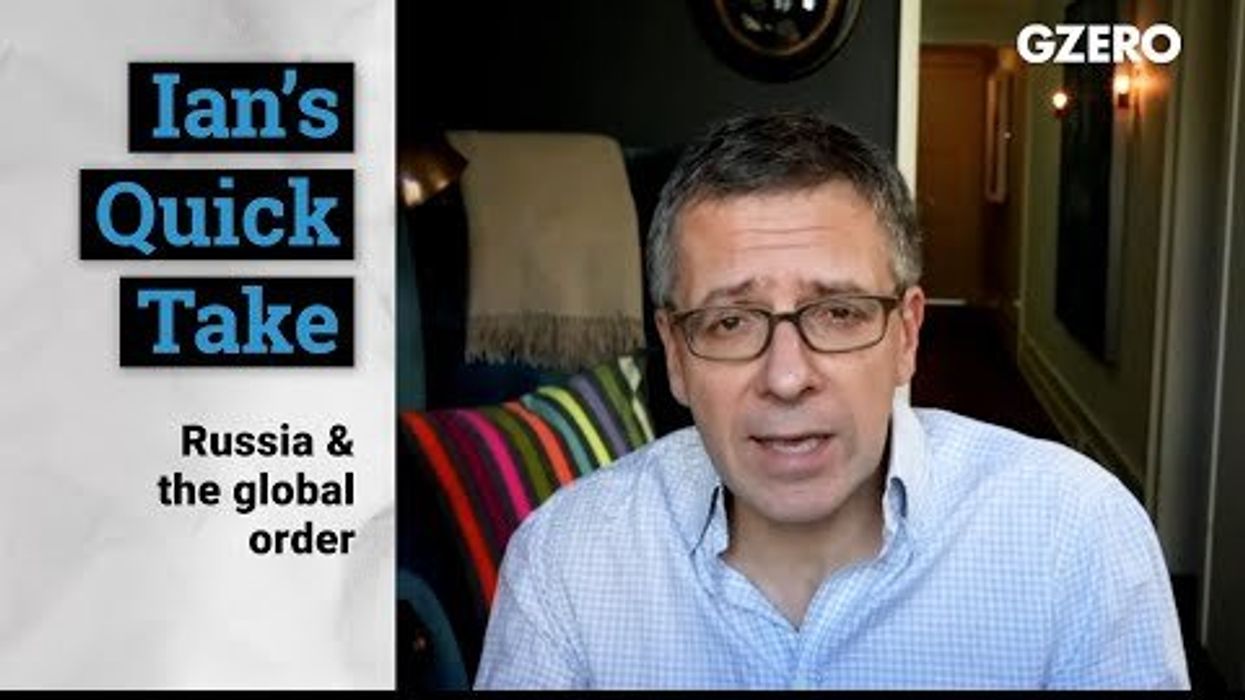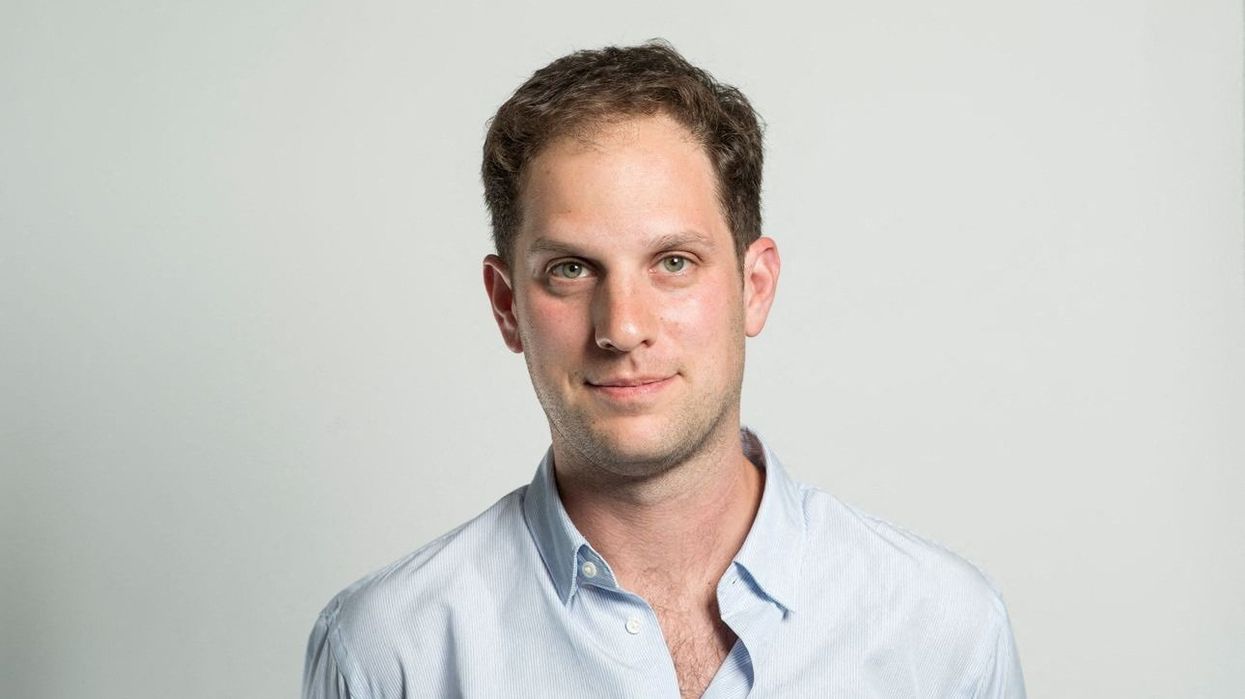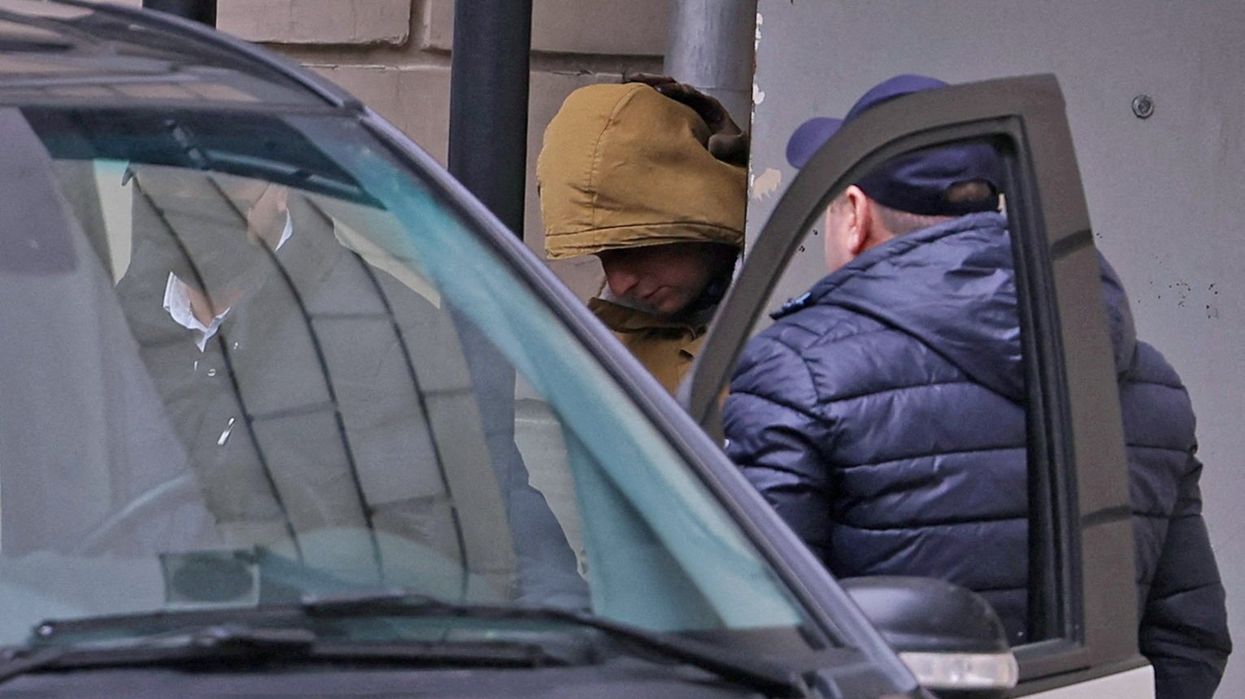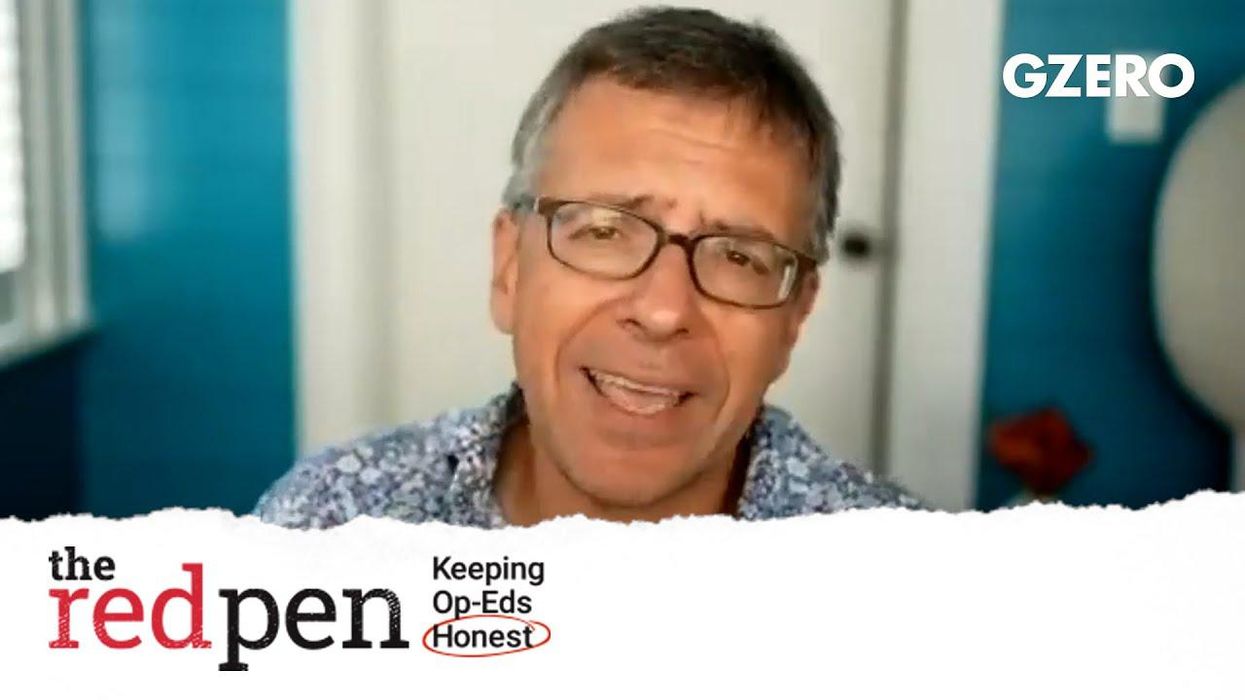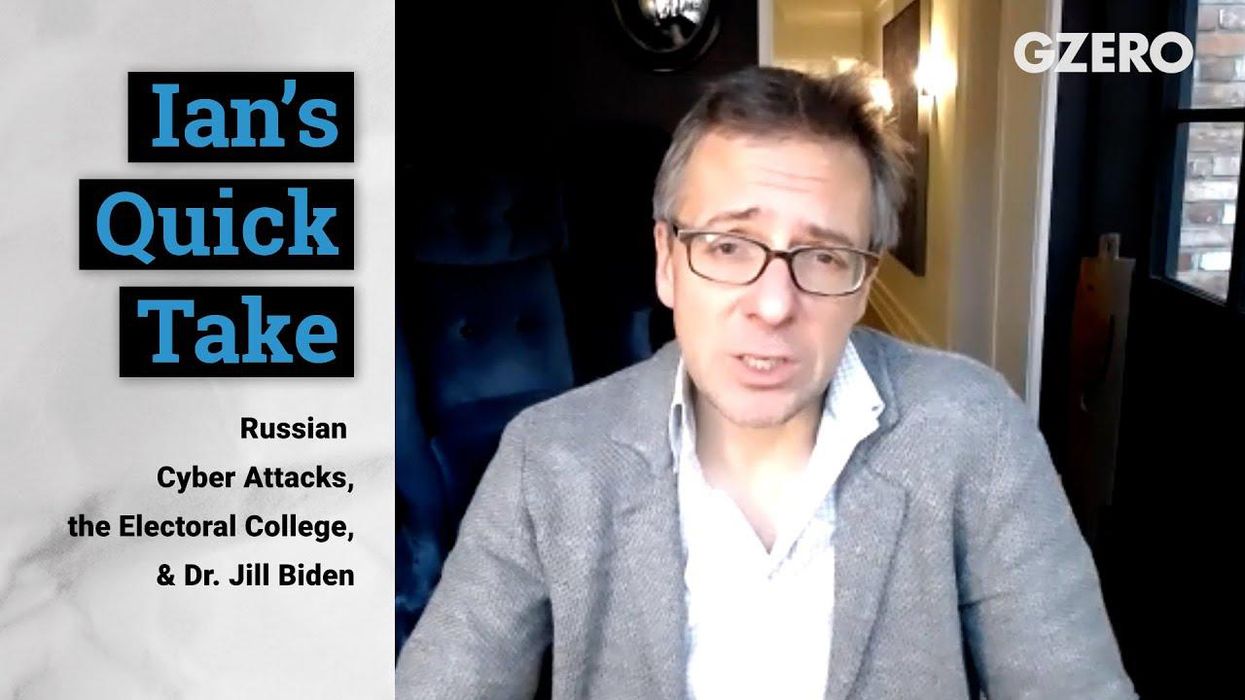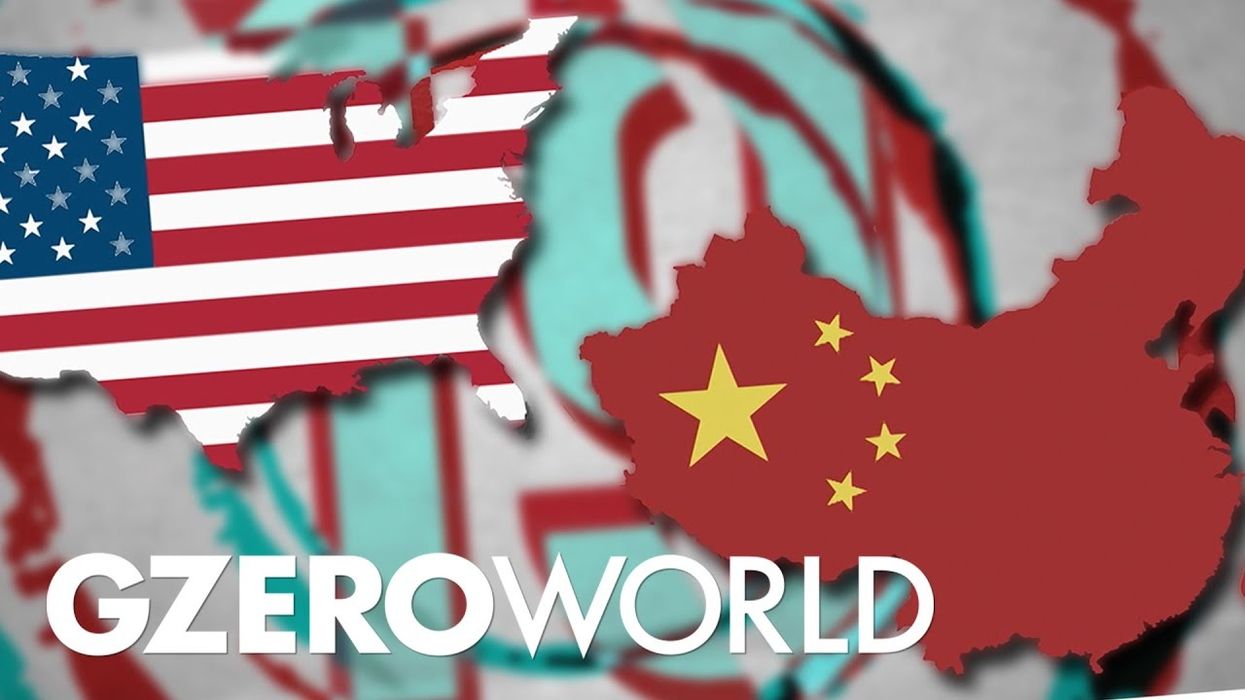Quick Take
Russia and the global order
Ian Bremmer's Quick Take: Lots of Russia news, about Russia's position vis-a-vis the US and the global order; that is increasingly going to be what we're going to be talking about going forward. This American journalist for the Wall Street Journal arrested on charges of espionage, Evan Gershkovich - it's going to be a secret trial. The Russians said that they caught him red-handed. There is no presumption of innocence when you're grabbed on espionage in Russia.
Apr 03, 2023
